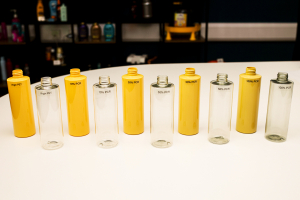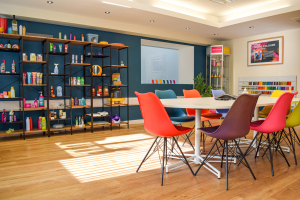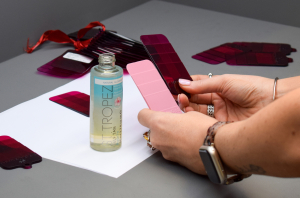
As plastic moulders and brand owners strive to adopt circularity principles, the use of post-consumer recycled (PCR) plastics continues to rise. A key driver behind this shift in plastic packaging is the UK Plastic Packaging Tax (PPT), introduced in April 2022. Initially set at £200 per tonne, the tax applies to plastic packaging components containing less than 30% PCR content. This policy provides an economic incentive for brands and manufacturers to use recycled plastics, while increased demand for PCR inflates its value, supporting the recycling industry. On April 1st 2025, the UK PPT saw its third successive annual increase, now reaching £223.69 per tonne.
The benefits and challenges of using recycled plastics
In addition to reduced taxation, using recycled plastics offers other clear advantages. Material circularity reduces plastic waste sent to landfill and decreases reliance on virgin polymers. Additionally, it can lower the carbon footprint of plastic mouldings, as the production of recycled feedstock via mechanical recycling is typically less carbon-intensive than the production of virgin, fossil-fuel-based polymers.
However, alongside these benefits, there are also challenges, particularly concerning product aesthetics. Colouring recycled plastics is complex due to feedstock variability. Residual colours from previous use lead to batch variances not present in virgin plastics, while inherent tints limit the range of achievable colours. These challenges are most prevalent when seeking to achieve bright colours, lighter tints and trans colours. Pearl and sparkle effects are also hard to achieve as the lack of clarity in the PCR base material can mask the effect. These problems are magnified as the percentage of recycled material in the moulding increases.

Graduated levels of PCR in coloured and natural PET bottles
On-site colour matching
ISO-certified plastic colouring specialist Broadway offers solutions to assist brands and moulders in adopting recycled plastics. As a trusted UK masterbatch manufacturer, Broadway formulates dozens of colours for use in PCR materials each week. Their expertise in colour formulation allows them to mitigate the aesthetic impact of incorporating PCR material.
The traditional colour approval process for packaging applications can become protracted. A colour house will typically post colour sample plaques to a plastic moulder, who is likely to carry out an internal review before sending these on to their customer – the brand owner, for final approval. If colour changes are deemed necessary, feedback must be relayed through the chain and interpreted correctly by the colourist before the process is then repeated. It can take weeks or even months to reach approvals and the added variables of PCR content only exacerbate the difficulties with the traditional process.
Broadway’s on-site colour matching suite provides an efficient alternative, particularly beneficial for packaging with high PCR content. Brand owners, accompanied by their moulder if desired, can visit Broadway to review and approve colours in person while sample plaques are still warm from the injection moulders in Broadway’s colouring lab.

Broadway’s on-site colour matching suite
Colourist and Technical Advisor Ben Wilson explained:
“The complexities of colouring PCR are still widely misunderstood. There’s little value in approving a colour sample plaque unless it’s moulded using the same PCR which will be used in the customer’s production run. Any tint in the base material will affect the colour a masterbatch will achieve in the finished article. With our match-on-site service, a customer can provide a sample of their PCR moulding material, we’ll then formulate a colour to give the correct end result when used specifically in that material. Switching from virgin to PCR, or increasing the PCR loading will almost always require a change in the masterbatch formulation to counteract the tint of the recycled base polymer. Given the batch-to-batch variances in PCR, this process may need to be repeated for subsequent production runs.
When brand owners visit us to approve their matches, we can show firsthand how different PCR loadings will alter the colour of their moulding, and to what extent we can counteract this with colour formulations. This enables them to make informed decisions when balancing sustainability and aesthetics. We’ve hosted many brand owners, providing them with valuable insights into colouring PCR while enabling them to approve several new colours in just a few hours. They leave with confidence, having directly overseen the process.”

Broadway’s other solutions for PCR
Odour neutraliser – Another common issue with recycled material is odour. PCR can originate from various sources and may carry unpleasant smells during processing and in finished components. Broadway offers odour-neutralising additives, which can be incorporated into colour formulations to trap odour molecules and reduce unwanted odours.
PCR carrier masterbatch – Broadway can provide masterbatches with PCR carrier resins, an important consideration for brands seeking to claim their packaging is “made from 100% recycled plastic”. Even if the moulding material is 100% PCR, adding a masterbatch with a virgin carrier resin results in around 0.5% – 4% virgin plastic in the final product. While regulations on “100% recycled plastic” claims vary, Broadway’s PCR carrier masterbatches ensure the final component contains no virgin polymer.
Tint shift – Natural (uncoloured) PCR mouldings often have an undesirable ‘muddy’ tint. A subtle tint masterbatch can be added to shift the colour towards a greener or bluer hue, improving the visual appeal of uncoloured PCR packaging for consumers.
Fibre effects and bio-fillers – Some brands note that the addition of PCR material doesn’t alter the appearance of their product enough. Having no visual indication of PCR content can cause concerns that consumers won’t recognise their efforts to support material circularity. Broadway offers fibre effect masterbatches and a range of bio-filled materials. These provide tonal variations which can be used to help differentiate new product lines, offering consumers a clear visual cue to the inclusion of recycled materials.
Sustainability is a core principle for Broadway. Their expertise in colouring PCR is trusted by multinational consumer goods companies and plastic moulders across the UK and Europe. They help businesses maintain aesthetic excellence while reducing environmental impact. Broadway’s experienced team is happy to offer helpful advice on PCR colouring and FREE custom colour matching.
📞 01986 875 100 | 📧 sales@broadwaycolours.com